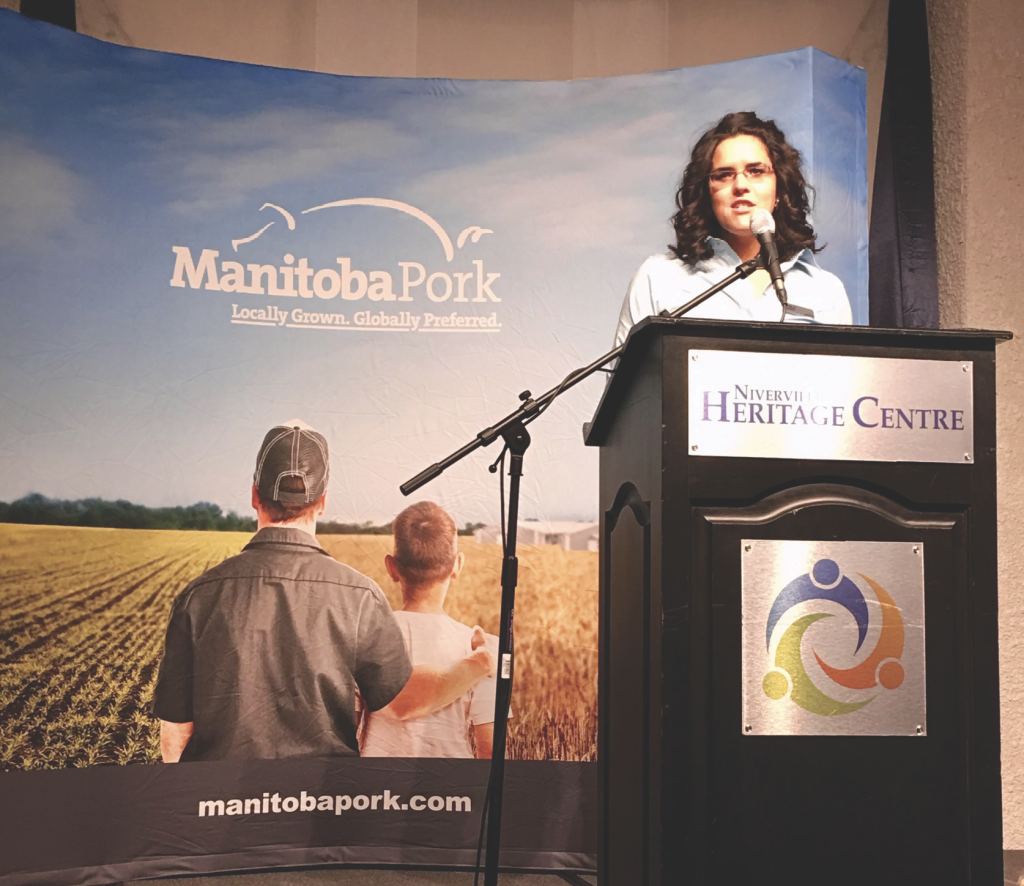
Cam Dahl, General Manager of Manitoba Pork, confirmed a case of PED (Porcine Epidemic Diarrhea) in a finishing barn in southeastern Manitoba. He highlighted the effectiveness of on-farm bio-security efforts, noting that this case reported in December 2024 was the first one in 2024.
“In previous cycles, we would have seen a significant number of cases earlier, such as during the past spring,” Dahl said. This delayed appearance demonstrates the success of preventative measures implemented across the province. Manitoba Pork remains vigilant in its efforts to control and mitigate the spread of PED.
Jenelle Hamblin, Director of Swine Health at Manitoba Pork, said, “What we’re seeing on the ground here with our first case of PED this season is certainly not unexpected. When drafting our PED elimination plan, we anticipated cases emerging in 2024.”
Hamblin said it’s a testament to the industry that producers have kept the case numbers down until now. The appearance of a case does not mean the plan is a failure. The focus remains on effective cleanup and maintaining active measures to control and eliminate the disease.
In the past, farm journalists could enter hog barns with relative ease. However, with tightened bio-security protocols, gaining access has become a carefully orchestrated process. This fall, one journalist (Harry Siemens), had the rare opportunity to visit a hog barn, an experience that highlighted the industry’s unwavering commitment to protecting swine health.
The process began at the farmhouse—not the barn—where the journalist was picked up and driven to the facility. Upon arrival, they familiarized themselves with the layout, noting that the office was on one side and the barn on the other, separated by a half wall. They carefully crossed the barrier one foot at a time to transition to the barn.
Before proceeding further, the journalist adhered to strict protocols inside the barn, including showering and changing into provided clothing. Even the cell phones underwent thorough disinfection to ensure safe use for photography. Every step underscored the seriousness with which the industry approaches bio-security, emphasizing the importance of animal health.
Jenelle Hamblin responded: “Exactly, Harry. Everything you described is about creating those transition zones to leave the dirty stuff behind. It’s about ensuring cleanliness at every step—changing into clean clothes and using their designated items. You’ve experienced it firsthand, and that’s exactly the goal: maintaining strict bio-security to protect the animals.”
Ok, now what happens in real life on the ground when it looks like a PED find?
Hamblin outlined the immediate actions taken when clinical signs suggest a potential Porcine Epidemic Diarrhea (PED) case.
“Whenever we receive a report of clinical signs, the farm is immediately placed under bio-containment,” Hamblin explained. This protocol goes into action as soon as any signs emerge that could indicate PED. Diagnostic samples are then collected and sent for testing to confirm the presence of the virus.
“Once PED is confirmed, the farm remains under strict bio-containment measures,” she added. Producers work closely with their veterinarians to implement a detailed PED elimination plan to ensure the virus’s eradication while minimizing further risks.
This rapid response and collaboration highlight the importance of bio-containment and strategic planning in protecting Manitobas swine industry from the spread of PED.
Manitoba Pork’s response to a PED case involves a coordinated sector-wide effort. Barn managers work closely with veterinarians to implement bio-containment and elimination protocols tailored to the specific production type, such as sow, nursery, or finisher operations.
Manitoba Pork and Manitoba Agriculture support these efforts by enacting a notification protocol, informing producers within a five-kilometre radius of the infected farm to enhance bio-security and mitigate risks. This collaborative approach ensures swift containment and effective management of PED outbreaks, protecting Manitoba’s swine industry.
Producers must stay vigilant for clinical signs of PED and report them to their veterinarians immediately to ensure swift action and necessary precautions. Extra attention is critical in southeastern regions, where the potential for virus spread is higher. Doubling down on bio-security measures is essential to containing the virus and preventing further outbreaks. Prompt reporting and strict bio-security are key to protecting Manitoba’s swine industry. •
— By Harry Siemens





